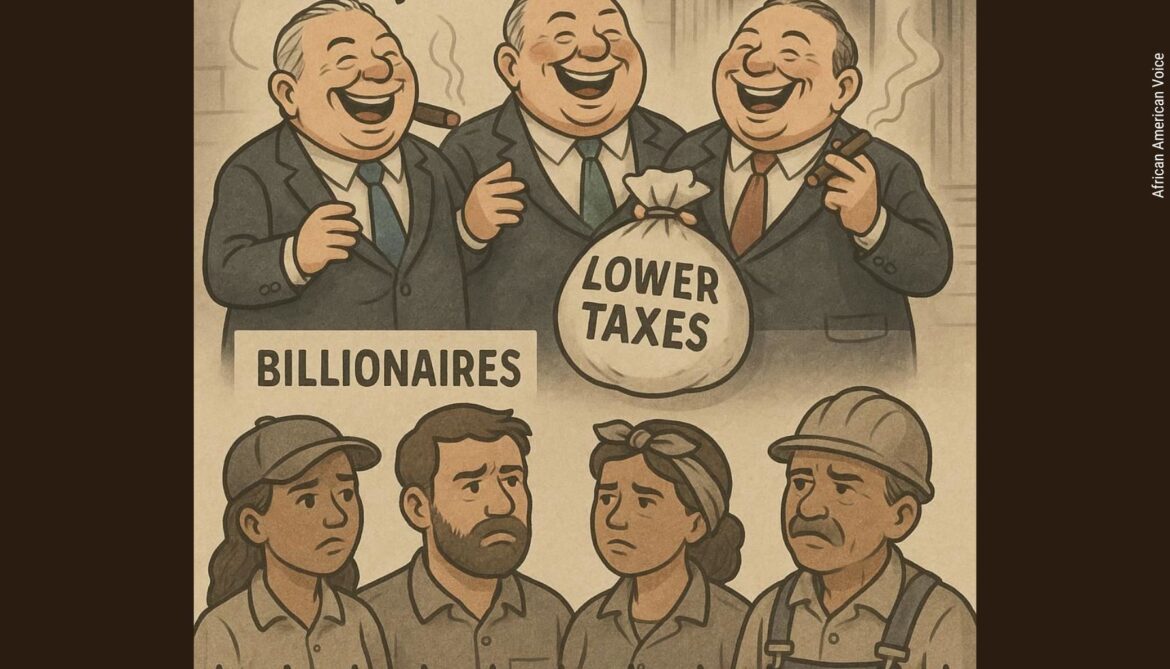Washington, D.C., is home to some of the richest people in America, and under President Donald Trump’s tax agenda, they continue to pay a lower share of their income in taxes than most working residents of the city.
A new National Bureau of Economic Research (NBER) study shows that the nation’s 400 wealthiest households paid an average effective tax rate of just 24% between 2018 and 2020 — compared with 30% for the overall population and 45% for top wage earners. That steep drop from earlier years stems from Trump’s 2017 Tax Cuts and Jobs Act, which slashed the federal corporate tax rate from 35% to 21% and opened new loopholes for the ultra-wealthy.
Now in his second term, Trump is pushing further measures that exempt billionaires from paying their fair share while shifting the burden onto ordinary Americans.
The effects are especially stark in D.C., where the Forbes 400 list has remained dotted with local billionaires.
Amazon founder Jeff Bezos, who owns the Washington Post and a Kalorama estate, sits at the top with a fortune of $161 billion.
“Between 2006–2018, Jeff Bezos’s wealth grew by $127 billion. His federal income tax bill? $1.4 billion total. That’s about 1% effective tax rate,” Kashu founder J. Grey Friend wrote on X, formerly known as Twitter. “Meanwhile, the average worker pays 20–30%.”
Others with deep local ties include candy heiress Jacqueline Mars and her relatives, worth nearly $39 billion, and Carlyle Group co-founders David Rubenstein, Daniel D’Aniello, and William Conway Jr., each worth billions and firmly anchored in Washington’s business and civic life.
Despite their vast holdings, the NBER study shows billionaires in the capital and across the country exploit structural gaps in the tax code. Corporations they control distribute little in dividends, passthrough firms report paper losses despite strong profits, and estate taxes barely touch their wealth. For the richest households, taxable income amounts to only about one-third of their actual economic income, which drastically cuts their IRS bills.
Between 2010 and 2017, billionaires paid about 30% of their income in taxes — roughly the same as average Americans. But once Trump’s tax law took effect, their rate dropped to 24%, and by 2018–2020 they were paying only 1.3% of their wealth annually in taxes.
“Ultra-high-net-worth individuals appear less taxed than the average American,” NBER authors noted.
Source: Published without changes from Washington Informer Newspaper




